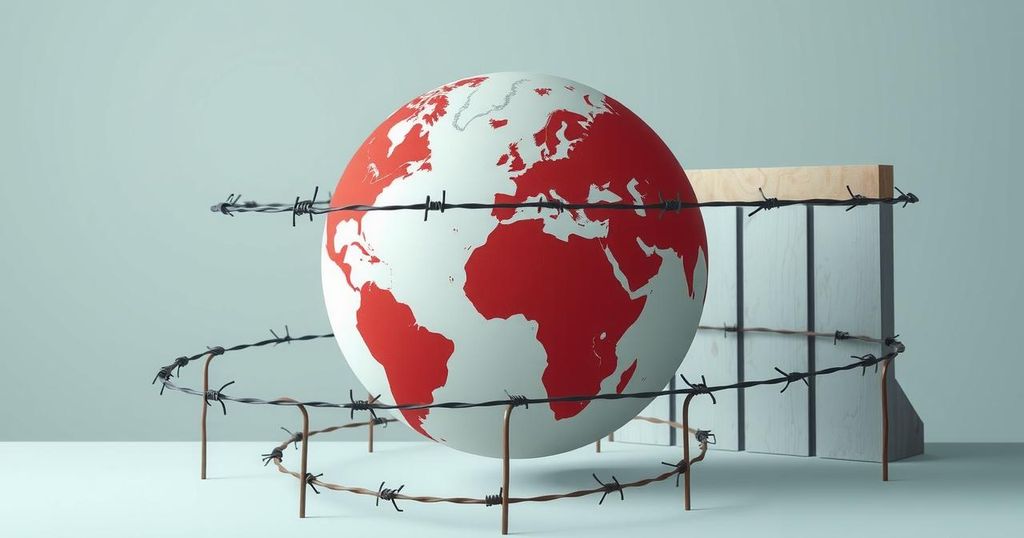Examining Tariff Policies: Robert Lighthizer’s Views on China’s Economic Threat

Robert Lighthizer, former trade chief, argues that China poses a grave threat to the U.S., advocating for high tariffs on imports to achieve trade balance. Despite criticisms about tariffs raising consumer prices, Lighthizer believes they will foster job creation in the U.S. His proposals highlight a strategic decoupling from China as necessary for economic security, amidst fears of retaliatory tariffs from trading partners.
Former U.S. Trade Chief Robert Lighthizer asserts that China represents a significant threat to the United States, advocating for the implementation of tariffs on Chinese imports. He emphasizes the need for such tariffs to rectify the trade deficit and to combat what he describes as an economic war waged by China against the United States. He proposes enormous tariffs, suggesting they could reach as high as 60%, to achieve a balanced trade relationship with China.
Lighthizer points out that strategic decoupling from China is essential, whereby the U.S. would limit imports and investments, thereby disentangling its economy from China while maintaining some trade relations. He references the historical context of tariffs, noting that they’ve been debated over centuries, affecting various administrations and their economic policies. He argues that tariffs are necessary to combat the loss of American jobs and industries due to foreign competition.
The context also delves into the impact of tariffs on American consumers, noting that while they may protect certain industries, they typically increase prices for imported goods, affecting household budgets significantly. Lighthizer counters that tariffs will ultimately lead to more job creation in the U.S. despite initial concerns about job losses among companies reliant on imported materials.
Economists warn that while tariffs may protect a limited number of jobs in specific sectors, the overall economic impact can include increased prices for consumers and potential job losses in other industries. The tension between the need for cheaper imports and domestic job protection remains contentious, as Lighthizer proposes that adjustments in U.S. corporate strategies will lead to positive outcomes for American workers in the long run.
Finally, the ongoing trade tensions are further exacerbated by potential retaliatory measures from Canada and Mexico, which may respond to U.S. tariffs with their own. This escalation may lead to a trade war, suggesting that while tariffs are promoted as a protective measure, they carry significant risks that could ultimately harm American consumers and the economy.
The discourse regarding tariffs under the Trump administration, particularly through Robert Lighthizer’s lens, highlights a significant shift in U.S. trade policy. Lighthizer’s perspectives focus on the competitive imbalance with China and the necessity of tariffs as tools for ensuring national security and economic stability. His approach advocates for a restructured trade relationship, aiming to reduce dependency on foreign goods while supporting domestic industries.
In conclusion, Robert Lighthizer’s advocacy for tariffs reflects a critical viewpoint on U.S.-China trade relations, emphasizing the perceived necessity of such measures to protect American interests. While tariffs may offer short-term benefits for certain industries, they raise valid concerns regarding their broader economic implications, including potential price increases for consumers and retaliatory trade actions by neighboring countries. The ongoing debate underscores a fundamental challenge in balancing national security, economic independence, and consumer welfare.
Original Source: www.cbsnews.com








